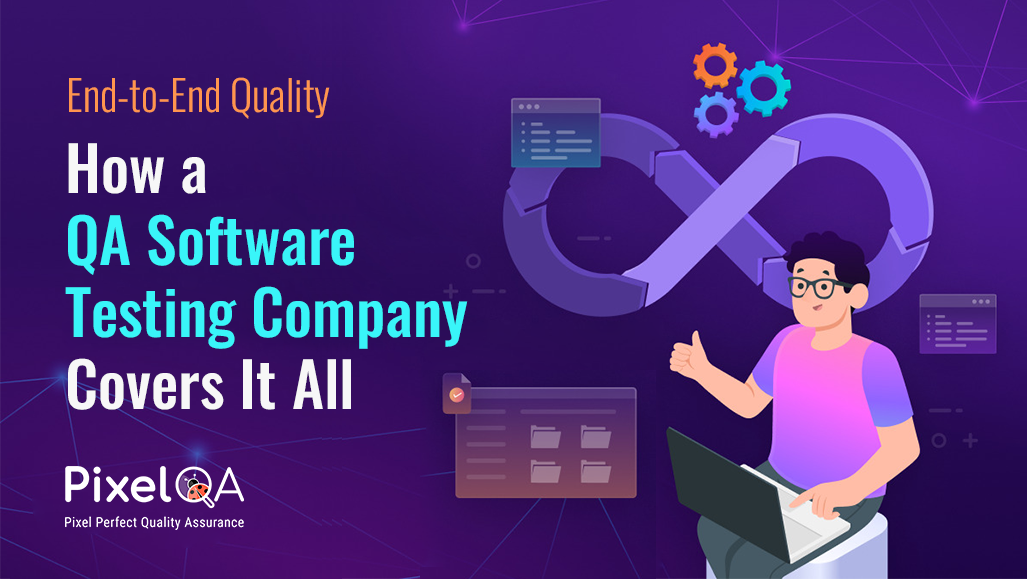
Picture opening a brand-new app with flair. Only to be met with a flood of negative ratings, customer complaints, and unscheduled downtime. Or, heaven forbid, a very public security breach. For business executives, this is not an unusual scenario. It's a far-too-frequent result of abandoned or fractured software quality assurance (QA). When the market is digital-first? Low-quality user experience, defective releases, and technical debt can rapidly diminish market trust. Destroy brand reputation and incur huge costs of post-release remediation.
Far too many organizations view QA as a checkpoint at the end of the development process. An afterthought to be dealt with just before flipping the "Go Live" switch. But quality in fact is not an afterthought; it's a process that is continuous and woven into each phase of the software development lifecycle. That's why engaging with a committed QA software testing company is not only a good idea, but a business imperative.
Why Traditional Testing Falls Short
Traditional QA methodologies tend to work independently. Stressing mere bug-finding in the later stages. This late-stage testing blinds teams to key issues. Overlooked requirements, fractured user flows, and hidden security loopholes that spread to production. The consequence? Delayed deadlines, bloated costs, unhappy users, and reactive firefighting that exhausts resources.
Key pain points with such limited QA approaches include:
- Reactive bug fixes lead to expensive, last-minute changes.
- Limited test coverage that fails to address real-world scenarios.
- Isolated communication between developers, testers, and business stakeholders.
- Lack of scalability, especially as products grow or evolve.
End-to-End Quality: A Modern QA Mindset
End-to-end quality assurance turns this on its head by instilling quality into each stage of development. QA is not an isolated activity. It's the glue holding together requirements, design, code, and customer results.
A specialized QA software testing company brings a holistic, methodical approach:
1. Requirements Analysis & Test Planning
End-to-end QA is a process that begins far in advance of even writing a line of code. QA professionals work with product owners and developers to determine business goals. User personas and system requirements. To do this, recognize ambiguities and prevent scope creep. While definitively establishing testable acceptance criteria.
Benefit: Teams gain a shared vision of success, minimizing misalignment and reducing revisions down the line.
2. Comprehensive Test Coverage
Rather than focusing solely on functional testing? A proficient QA partner ensures a 360-degree approach, including:
- Unit testing: Verifies isolated pieces of code for solid foundations.
- Integration testing: Verifies interfaces and data flow among modules.
- System testing: Verifies functionality against business requirements.
- User acceptance testing (UAT): Validates real users' workflows as optimal.
- Performance, security, and compatibility testing: Protects against slowdowns, breaches, and incongruent user experiences across platforms.
Benefit: Every potential failure path is mapped and managed before it impacts end users.
3. Automation, Scalability, and Speed
Manual testing is expensive but comparatively slow and narrow in coverage. Particularly for repeated or regression testing. End-to-end QA leverages new test automation frameworks and CI/CD practices. Enabling the quick execution of comprehensive test suits with each modification.
Benefit: Faster release cycles, reduced human error, and the ability to support scaling businesses without bottlenecks.
4. Early Defect Detection & Continuous Improvement
By the inclusion of QA right from the start and maintaining rigorous testing at each point of handover? Bugs are trapped and repaired early, when they're lowest-cost and most easily accomplished. Measurements and feedback cycles following releases make it possible to continuously improve.
Benefit: Decreased total cost of quality, fewer post-launch surprises, and constant evolution toward excellence.
5. Domain Expertise & Regulatory Compliance
Specialist QA firms typically have in-depth expertise in a particular area. Such as finance, healthcare, e-commerce, etc., so that they comply with industry norms and laws.
Benefit: Assurance that your software works as well as complies with necessary legal and customer trust factors.
Transforming Efficiency and Trust
When a company collaborates with an end-to-end QA vendor, the payoff is quantifiable:
- Quicker time to market with efficient release operations.
- Higher client satisfaction and retention with strong, intuitive products.
- Cost savings through catching defects early and preventing production crises.
- Improved team satisfaction and productivity with developers having the freedom to focus on innovation, not firefighting.
Think about industry leaders who invest in ongoing QA. They always lead the competition, shipping solid features more quickly. And scaling with confidence, because they know quality is embedded into every iteration.
The Conclusion
With business success brought on by digital experience, settling for anything less than high quality is taking too large a risk. End-to-end QA means you never take a chance. Every release is tested, trusted, and fine-tuned to your strategic goals.
If your existing quality control plan feels isolated, reactive, or insufficient. To align with your ambitions, it's time to do things differently. Discover how a committed QA software testing partner can bring peace of mind. Operational versatility and long-term customer allegiance. Don't wait for failure, invest in end-to-end quality, and empower your business to thrive.

